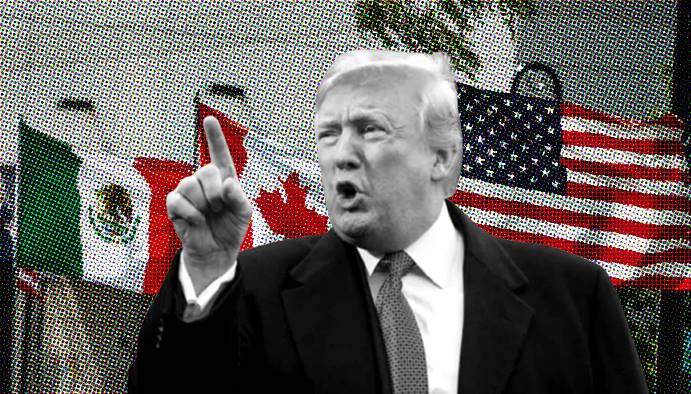WASHINGTON – US President Donald Trump’s new executive orders of 25 tariffs on most imports from Canada and Mexico, as well as a 10pc tariff on goods from China, sparked new tensions.
Most consumer goods like fruits, vegetables, TVs, and auto parts will be affected with new tariffs in place, as prices for these products are likely to climb. The tariffs are expected to prompt retaliatory measures from these countries which are likely to impose their own taxes on US exports, which could escalate tensions and disrupt trade flows.
Trump’s expected move garnered sharp reactions from trade experts and officials in the affected countries, who warn that the new tariffs could have broader economic consequences, including higher costs for consumers and potential disruptions in global supply chains.
The new tariffs also include a 10% tariff on Chinese imports, further intensifying global trade disputes. In response, Beijing announced plans to approach World Trade Organization (WTO) and suggested it will take retaliatory measures, though specific actions have not yet been disclosed.
Canadian Prime Minister Justin Trudeau also denounced the tariffs, revealing that Ottawa will impose 25pc duties on $30 billion worth of US goods, followed by additional tariffs on $125 billion of US products in the coming weeks. Trudeau said the tariffs would harm both Canadian and American industries, particularly in the auto and manufacturing sectors. Trudeau appealed directly to US nationals, warning that the tariffs would put jobs at risk on both sides of the border.
Meanwhile, Mexico also opposed Trump’s accusations, particularly his suggestion that Mexico was complicit in drug trafficking. Sheinbaum called for more bilateral cooperation to address issue and indicated that Mexico would impose its own retaliatory measures, though further details remain unclear.
The tariffs are likely to impact trade between the US, Canada, Mexico, and China, disrupting flow of goods such as cars, electronics, and food. With these countries accounting for over 40pc of US imports, experts are concerned that the new trade barriers could lead to higher prices for consumers and potentially hurt the US economy.
Amid tensions, the possibility of a broader trade war grows, with far-reaching consequences for global trade and economic stability.














